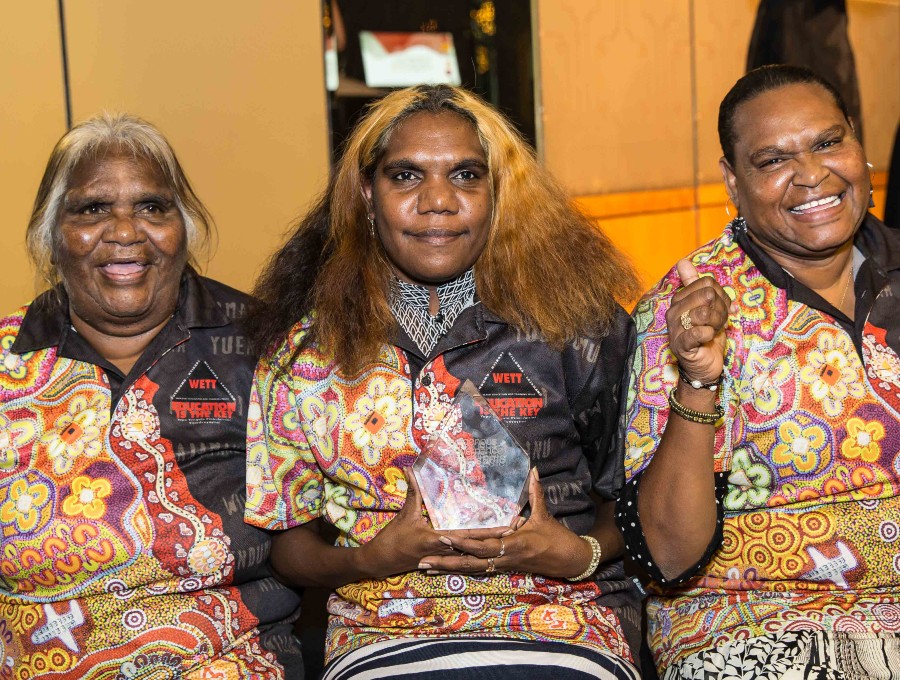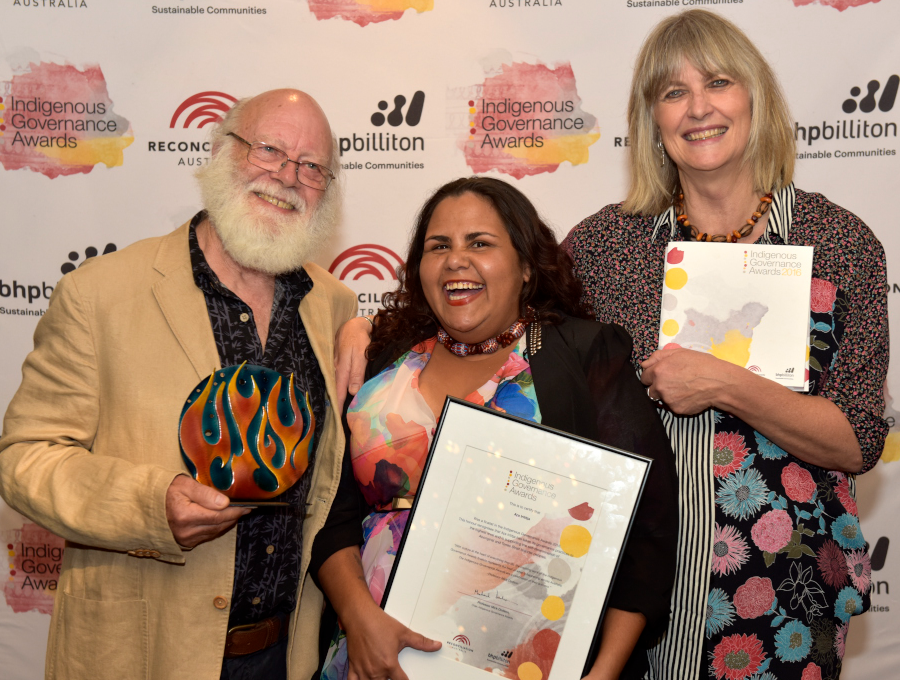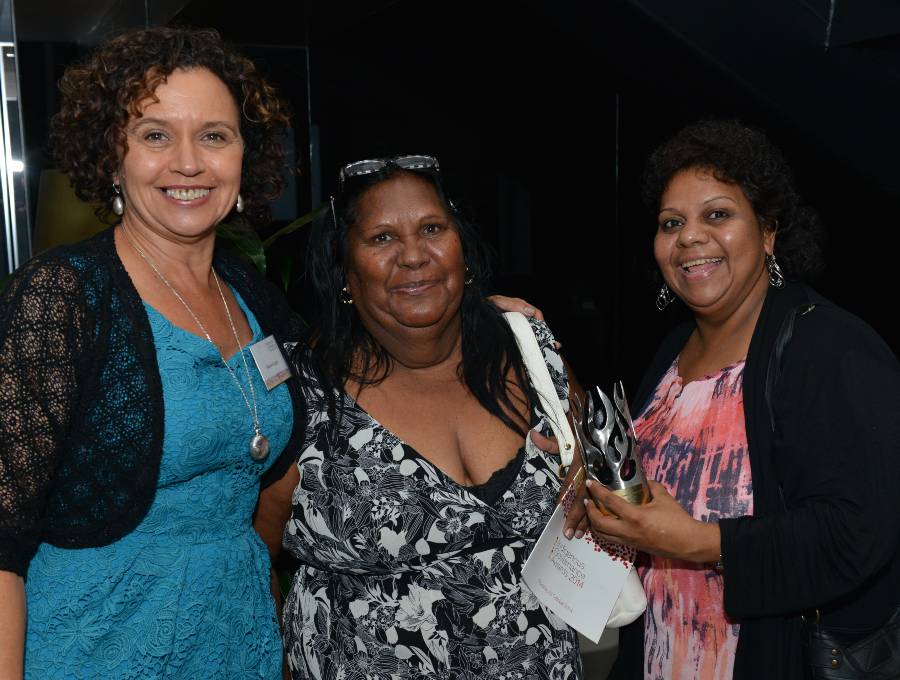Category 1 Winner
Aboriginal Health & Medical Research Council Human Research Ethics Committee (AH&MRC HREC)
The committee was established in 1996 to ensure that research conducted with and about Aboriginal people in NSW is conducted both ethically and culturally. It stood out to the judges because of their long and committed history in a space that is often overlooked.
Justice, self-determination and truth-telling in research and ethics is crucial to rectifying the historical devastation caused by this industry, and judges commended the AH&MRC for this work.
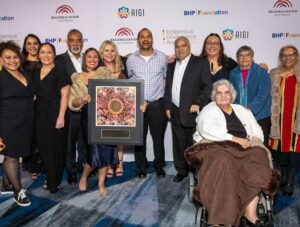
Category 2 Winner
Brewarrina Local Aboriginal Land Council
In pursuit of social justice, the Brewarrina Local Aboriginal Land Council aims to support the local Aboriginal community through strong governance and economic consolidation, as it seeks: the right to a distinct status & culture, the right to self-determination, and the right to land. Out of adversity and challenges, Brewarrina showed the judges that they have successfully built an organisation that is valued and respected in their community.
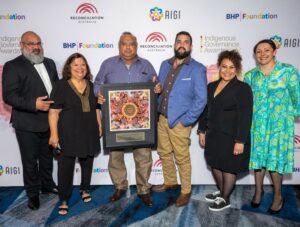
By focussing on land rights and their history, they have helped create a sense of pride, ownership and identity for their Country.
Category 3 Winner
Wungening Aboriginal Corporation
Wungening Aboriginal Corporation (Wungening) is a progressive Aboriginal Community Controlled Organisation based in Perth, with ten locations and over 200 staff to further its vision of a healthy, safe, strong First Nations community. Wungening stood out to the judges because of their distinctive and evident compassion, empathy and care for their clients
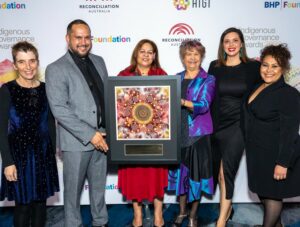
Working with vulnerable and stigmatised groups of people, Wungening consistently demonstrated their deep respect for their community.
Their work is widespread, but they have fostered close-knit relationships, as well as invested in two-way partnerships with other Aboriginal organisations.
Finalists: Category 1
Highly commended: Strengthening of the Koling wada-ngal Committee to support community in the west
Koling wada-ngal (Walking together) Committee engages in an equal partnership with the Wyndham Aboriginal community and key stakeholders to work towards providing a culturally safe Aboriginal Community Centre.
Judges saw the commitment and resolve of the Koling wada-ngal Committee members directly resulted in the Aboriginal community of western Melbourne having a safe place to nurture and pass on culture for generations to come.
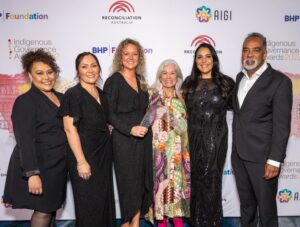
Highly commended: South Australian West Coast ACCHO Network – SAWCAN
The SAWCAN network consists of five Aboriginal Community Controlled Health Services who provide culturally appropriate, comprehensive primary health care services to approximately 5,000 Aboriginal people. SAWCAN demonstrated to the judges a combined strength to overcome challenges and issues in providing quality primary health care to their communities.
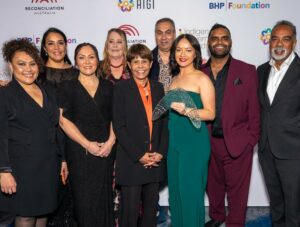
Finalists: Category 2
Mudjar Aboriginal Corporation
Mudjar Aboriginal Corporation (MAC) focusses on cultural education and preservation.
It demonstrated to the judges how they are involving its whole community in cultural and environmental education and preservation, creating beautiful spaces for people to come together.
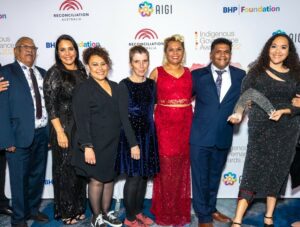
Naru Goori Groms
Naru Goori Groms encourages and empowers the younger generation to give surfing a go in a culturally safe environment.
It took the judges on their journey of how they have helped over 200 Aboriginal and Torres Strait Islander young people make healthy choices through their culturally safe and fun surf program, while also advocating for suicide awareness.
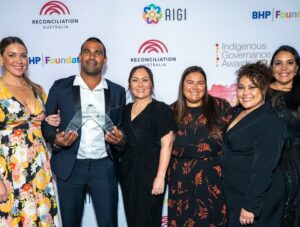
Finalists: Category 3
Arnhem, Northern and Kimberley Artists Aboriginal Corporation
Arnhem, Northern and Kimberley Artists (ANKA) Aboriginal Corporation is the peak support and advocacy body for Aboriginal artists and Aboriginal-owned community Art Centres across over one million square kilometres of country in remote northern Australia, in Western Australia and the Northern Territory. It showed the judges how they used influence and networks to bolster governance, helping to keep Aboriginal art and copyright under community control.
Robe River Kuruma Aboriginal Corporation
Robe River Kuruma Aboriginal Corporation (RRKAC) is the registered native title body corporate for Robe River Kuruma (RRK) native title determined areas.
They were unfortunately forced to withdraw before the judging process – but we still want to honour them for their strength in Indigenous governance and the good work they are doing.
Watch
Learn more about each of the 2022 finalists’ stories through their videos.
Previous awards
Take a look at the winners and finalists from previous Indigenous Governance Awards:
The Indigenous Governance Awards 2020 were postponed due to the pandemic.

